Campaign Finance Law
Campaign finance law plays a crucial role in shaping the landscape of political campaigns and elections. These laws are essentially a set of regulations that govern the various public financing sides of political campaigns. These laws promote transparency, accountability, and fairness in the electoral process. Federal campaign finance laws significantly impact how campaigns are funded and carried out.
Key Takeaways:
- Regulation: Campaign finance laws regulate political funding to ensure fair elections.
- Transparency: These laws promote transparency and accountability in political contributions.
- Preventing Corruption: They help prevent corruption and undue influence from wealthy donors.
Table of Contents
- Campaign Finance Law
- The History of Federal Campaign Finance Laws
- Key Milestones
- Key Moments in History in Campaign Finance Law
- 1867: Naval Appropriations Bill
- 1883: Civil Service Reform Act
- 1905: Teddy Roosevelt’s Message to Congress
- 1907: Tillman Act
- 1910: Federal Corrupt Practices Act
- 1925: Federal Corrupt Practices Act (Revised)
- 1939 and 1940: Hatch Act Plus Amendments
- FRANKLIN D. ROOSEVELT
- 1944: Formation of First PAC
- 1947: Taft-Hartley Act
- 1971: Federal Election Campaign Act (FECA)
- 1974: FECA Amendments (Post-Watergate)
- Birth of The Federal Election Commission
- Centralized Authority
- New Restrictions
- Big Money in Politics
- Why are these Laws Important
- Conclusion
- Campaign Finance: What You Need To Know Now
- Frequently Asked Questions
Campaign Finance Law
The History of Federal Campaign Finance Laws
In the vast and intricate world of politics, campaign finance laws are crucial in regulating money in political campaigns. The history of federal campaign finance laws dates back to the late 19th century. The passage of various acts (laws) and amendments shaped the landscape of political contributions and expenditures.
Key Milestones
The Tillman Act of 1907, marked the first federal law targeting regulation on campaign contributions from corporations. Responding to concerns about federal elections campaign act, corruption, and undue influence from corporate donors. The bill is named after Senator Benjamin Tillman.
Evolving Challenges
As time progressed, more laws were enacted to address evolving challenges in campaign finance. The Federal Election Campaign Act (FECA) of 1971 was landmark legislation that established disclosure requirements for all federal election campaigns, candidates, political parties, and committees.
It also limited contributions from individuals and prohibited contributions from certain entities like corporations and labor organizations. This laid the foundation for modern campaign finance regulation and set the stage for more reforms in later years.
Federal Election Commission (FEC) Opened in 1975
The creation of the Federal Election Commission (FEC) in 1974 further solidified the enforcement tools for campaign finance laws. The FEC is an independent regulatory agency tasked to oversee compliance with federal campaign finance regulations.
Its role includes monitoring political donations, enforcing contribution limits, and ensuring transparency in political campaigns. Over time, these laws have been subject to amendments and legal challenges, reflecting ongoing debates around campaign finance reform and its impact on the democratic process.
Federal Election Campaign Act
The Federal Election Campaign Act, commonly known as FECA, is a pivotal piece of legislation that has shaped the landscape of campaign finance in the United States. Enacted in 1971, FECA established a framework for regulating political campaign contributions and expenditures at the federal level.
This landmark law increased contribution transparency and accountability in the electoral process. By imposing limits on money contributions by individuals, political action committees (PACs), and political parties.
FECA 1971 introduced key provisions that set the stage for modern campaign finance regulations. One of the significant aspects of this law was the creation of the Federal Election Commission (FEC) to oversee and enforce compliance with campaign finance laws.
Monitoring Election Spending
The FEC plays a crucial role in monitoring election spending, disclosing financial information, and investigating potential violations of campaign finance rules. Through its enforcement efforts, the FEC strives to uphold the integrity of elections and prevent undue influence from wealthy donors or special interest groups.
Under FECA, strict guidelines regarding campaign contribution limits were established to prevent excessive influence from wealthier donors. These current contribution limits apply to individual contributions to candidates, PACs, and political parties.
Additionally, FECA requires candidates and party committees to report their financial activities regularly to ensure transparency in political fundraising and spending. By implementing these measures, FECA aimed to reduce corruption risks associated with large-scale political donations and enhance public trust in the integrity of the electoral process.
Key Moments in History in Campaign Finance Law
1867: Naval Appropriations Bill
In the realm of campaign finance history, the 1867 Naval Appropriations Bill played a significant role in shaping the regulations surrounding political contributions. This bill marked one of the earliest instances where concerns about financial influences on political campaigns were addressed at the federal level.
The bill aimed to increase transparency and accountability by requiring detailed reporting of expenditures related to naval appropriations. By Prohibiting officers and employees
of the government from soliciting money from naval yard workers.
Laying The Foundation
The 1867 Naval Appropriations Bill set a precedent for future campaign finance laws by laying the foundation for increased oversight and disclosure requirements. This early legislation reflected a growing recognition of the potential undue influence large financial contributions could have on political decision-making processes.
Establishing Rules and Norms
While not as comprehensive or intricate as modern-day campaign finance laws, this bill represented an important step towards establishing rules and norms around financial support in politics. Understanding the historical context of the 1867 Naval Appropriations Bill provides valuable insights into the evolution of campaign finance regulations in the United States.
By examining how early legislation addressed concerns about political contributions and financial influence, we can better appreciate the motivations behind subsequent reforms such as the Tillman Act of 1907 and the Federal Election Campaign Act (FECA) of 1971.
These milestones in campaign finance history highlight ongoing efforts to balance democratic ideals with ensuring transparency and accountability in political fundraising practices.
1883: Civil Service Reform Act
In 1883, the United States Congress passed the Civil Service Reform Act. It is also known as the Pendleton Civil Service Act. This marked a significant milestone in the evolution of campaign finance laws.
The Pendleton Civil Service Act aimed to combat political corruption by establishing a merit-based system for federal employment.
Rather than the previously prevalent practice of awarding government positions based on political support and money contributions.
This reform was a crucial step toward creating a more transparent and accountable government.
President Chester A. Arthur
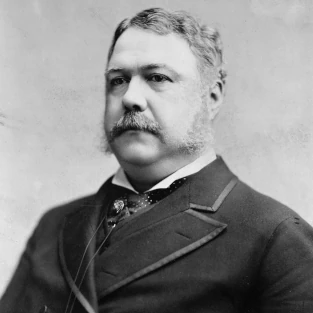
President Chester A. Arthur signed the Pendleton Civil Service Act into law on January 16, 1883.
The Civil Service Reform Act also had implications for campaign finance by reducing the influence of political contributions on securing government positions.
By implementing a merit-based system, the Act sought to minimize the practice of individuals making large campaign contributions in exchange for favorable treatment or access to elected officials.
Corruption and Undue Influences in Government.
This shift helped pave the way for future campaign finance reform efforts that aimed to limit the impact of money in politics. The passage of the Civil Service Reform Act highlighted a growing recognition among lawmakers and the public about the need to address corruption and undue influences in government.
While this legislation primarily focused on civil service practices, its ripple effects extended into discussions about campaign finance reform and transparency in political campaigns.
The Act laid a foundation for subsequent laws such as the Federal Election Campaign Act (FECA) of 1971. In establishing disclosure requirements and contribution limits to ensure fair and ethical practices in political fundraising and spending.
1905: Teddy Roosevelt’s Message to Congress
In 1905, President Teddy Roosevelt delivered a powerful message to Congress that set the stage for future campaign finance reform efforts. Roosevelt was known for his progressive views and determination to tackle corruption in government. Roosevelt highlighted the need for transparency and accountability in political donations.
President Teddy Roosevelt
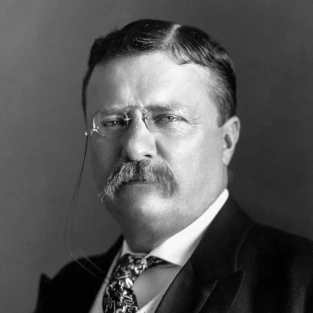
When the misdeeds of these successfully dishonest men are discovered, suffering comes not only upon them but upon the innocent men whom they have misled.
Teddy Roosevelt
His speech emphasized how important regulating campaign contributions are to ensure fair and honest elections. Roosevelt’s message called for strict laws to prevent wealthy individuals and special interest groups from exerting undue influence over politicians through financial support.
He believed that money should not dictate the outcomes of elections and that all citizens should have an equal voice in the political process. This sentiment aligns with the core principles of campaign finance reform, which seek to level the playing field and limit the impact of money on politics.
Roosevelt’s Call for Action
The Tillman Act of 1907, passed in response to Roosevelt’s call for action, marked a significant milestone in campaign and primary election finance history. This legislation prohibited corporations from making direct contributions to federal candidates. To curb potential corruption and uphold the integrity of the electoral system.
The Tillman Act laid a foundation for future serious campaign finance bills and contribution laws and set a precedent for regulating political donations by public interest. Teddy Roosevelt’s advocacy for campaign finance reform continues to inspire efforts to uphold transparency and accountability in modern politics.
1907: Tillman Act
Back in 1907, the Tillman Act shook up the world of political contributions like never before. This act was a game-changer when it came to campaign finance reform. Named after Senator Benjamin Tillman, this federal law prohibited corporations from making direct contributions to federal political campaigns.
Senator Ben Tillman
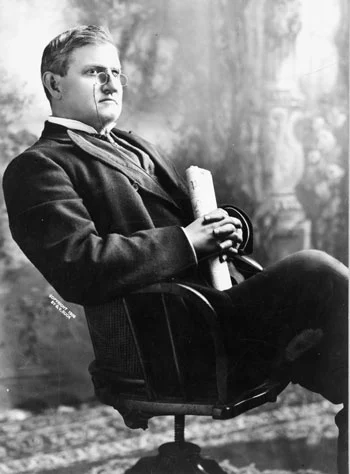
Senator Ben Tillman from South Carolina sponsored the Tillman Act to prohibit corporations from making money contributions in connection with political elections. One of the First Campaign Finance Laws in the nationYes, you heard that right – no more big bucks from big businesses influencing presidential elections! The Tillman Act aimed to curb any potential corruption that could arise from corporate interests pouring money into political campaigns.
The Tillman Act of 1907 marked a significant shift in campaign finance laws in the United States. It set a precedent for future regulations and restrictions on political donations.
While the law itself was not perfect and had loopholes that needed to be addressed in later reforms such as the Federal Election Campaign Act (FECA) of 1971. By further laying the groundwork for greater transparency and accountability in campaign finance.
The Watchers
Fast forward to today, organizations like OpenSecrets monitor campaign contributions and track where the money flows during political campaigns and general elections. Check them out to see who contributes money to a politician.
The Federal Election Commission (FEC) plays a crucial role in enforcing these laws and ensuring that candidates adhere to regulations set forth by acts like the Tillman Act of 1907. The impact of campaign finance laws cannot be understated – they shape the landscape of our democracy and influence how political campaigns are funded and run.
1910: Federal Corrupt Practices Act
In 1910, the Federal Corrupt Practices Act was enacted, marking a significant step towards regulating campaign finance in the United States.
This act aimed to bring transparency and accountability to political campaigns by requiring candidates to disclose their campaign contributions and expenditures.
The law sought to curb corruption in elections by limiting the influence of wealthy individuals and special interest groups on the political process.
President William Howard Taft
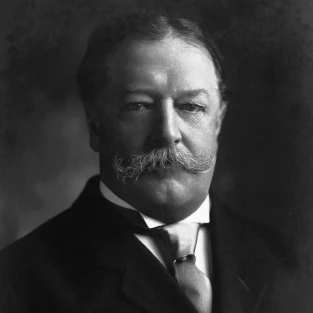
The Act was signed by President William Howard Taft, on June 25, 1910.
The Federal Corrupt Practices Act built upon earlier efforts such as the Tillman Act of 1907, which banned corporate contributions to federal political campaigns. By requiring detailed reporting of campaign donations and spending, this act helped create a more level playing field for candidates seeking public office.
It set a precedent for future campaign finance laws that aimed to uphold the integrity of the electoral process. The passage of the Federal Corrupt Practices Act in 1910 reflected growing concerns about the role of money in politics and its potential to undermine democracy.
By establishing rules for political fundraising and spending, this law laid the groundwork for further reforms such as the Federal Election Campaign Act of 1971 (FECA). These laws have played a crucial role in shaping modern campaign finance regulations and promoting transparency in political campaigns.
1925: Federal Corrupt Practices Act (Revised)
In 1925, the Federal Corrupt Practices Act underwent revisions regulating political campaign finances. The original act passed in 1910, focused on exposing and preventing corruption in campaign funding.
However, the revised version sought to strengthen these regulations by imposing stricter limits on political contributions and expenditures. This was a significant step towards ensuring transparency and accountability in campaign finance.
Pivotal Moment
The amendments to the Federal Corrupt Practices Act in 1925 marked a pivotal moment in the evolution of campaign finance laws in the United States.
By refining the regulations governing political donations and expenditures, lawmakers aimed to curb any potential instances of corruption or undue influence in elections.
These revisions underscored the ongoing efforts to uphold integrity and fairness within the electoral process. Over time, these reforms laid the groundwork for modern-day campaign finance laws that continue to shape how political campaigns are funded and conducted.
Subsequent Legislation
The legacy of the Federal Corrupt Practices Act (Revised) lives on through subsequent legislation such as FECA 1971 and later reforms like the Bipartisan Campaign Reform Act of 2002. As we navigate the complexities of campaign finance regulations today, we need to recognize the critical historical significance of milestones such as the revisions made to this act in 1925.
1939 and 1940: Hatch Act Plus Amendments
The law was named for Senator Carl Hatch of New Mexico.
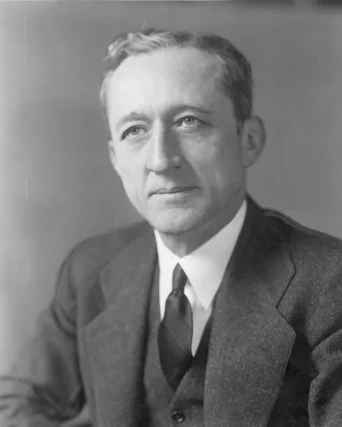
The 1939 Act prohibits voter intimidation or bribery and limits the political campaign activities of federal employees. It bans using public funds allocated for relief or public works for electoral campaigns.
Additionally, it prevents officials receiving federal salaries from leveraging job promises, promotions, financial aid, contracts, or other advantages to extract campaign donations or political endorsements.
These amendments further restricted the political activities of federal employees. The key aspect was prohibiting them from engaging in certain partisan political activities to ensure neutrality and prevent undue influence on elections.
President Franklin D Roosevelt
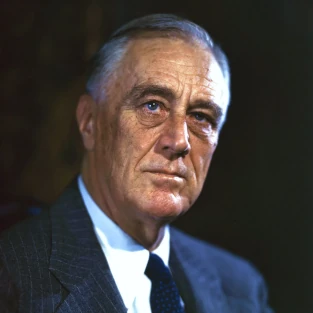
“It is my belief that improper political practices can be eliminated only by the imposition of rigid statutory regulations and penalties by the Congress, and that this should be done”
FRANKLIN D. ROOSEVELT
32nd President of the United States:1933 ‐ 1945
Message to Congress on the Hatch Act.
President Franklin D Roosevelt signed both the 1939 bill and the 1940 amendment
Restricted Political Activities
The amendments also mandated that federal employees could not use their official authority or influence to interfere with or affect the results of an election.
The Hatch Act Amendments were a response to concerns about potential abuses of power and conflicts of interest within the federal government. By limiting the political activities of federal employees, these amendments sought to uphold the integrity of government institutions and safeguard against corruption.
Clearer Boundaries
The restrictions imposed by the Hatch Act Amendments helped establish clearer boundaries between official duties and political engagements for federal employees, fostering a more transparent and accountable public service sector. The impact of the Hatch Act Amendments reverberated through subsequent decades, shaping discussions around campaign finance reform and political contributions.
These regulations underscored the importance of maintaining impartiality within government agencies and preventing any undue influence on electoral processes. As part of a broader effort to promote fair elections and transparency in political campaigning, the Hatch Act Amendments played a crucial role in laying down foundational principles for modern campaign finance laws in the United States.
1944: Formation of First PAC
In 1944, something groundbreaking happened in the world of politics – the formation of the very first Political Action Committee (PAC).
PACs were established to raise funds and support political candidates, parties, or issues. This pivotal moment marked a significant shift in campaign finance practices, allowing for a more structured and organized approach to political contributions.
New Avenues
The formation of the first PAC opened up new avenues for individuals and organizations to get campaign funds and participate more actively in the political process. By pooling resources through contributions, PACs could amplify their impact on elections and policy-making.
This development laid the groundwork for the modern-day influence of PACs on political campaigns and advocacy efforts. Over the years, PACs have evolved to play a crucial role in shaping political landscapes and influencing decision-making.
With regulations set forth by laws like the Federal Election Campaign Act (FECA) of 1971 and subsequent campaign finance reform measures, PACs have become a cornerstone of campaign finance strategy.
Today, PACs are subject to strict reporting requirements enforced by entities like the Federal Election Commission (FEC), ensuring transparency and accountability in political contributions.
1947: Taft-Hartley Act
The Taft-Hartley Act of 1947 was a significant piece of campaign finance regulation. Also known as the Labor Management Relations Act, this legislation was primarily focused on regulating the relationship between labor unions and employers.
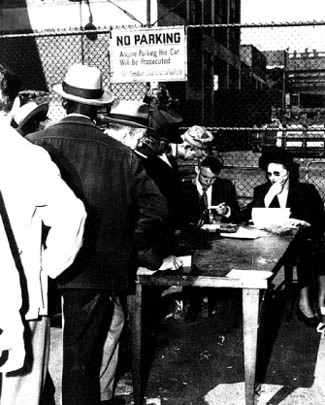
However, tucked within the provisions of the Taft-Hartley Act, labor organizations were prohibited from making direct contributions or expenditures supporting any political candidate or political party.
This restriction was a response to concerns about potential undue influence and corruption that could arise if unions funneled money into political campaigns unchecked.
Fair Electoral Process
The act aimed to create a more transparent and fair electoral process by limiting the financial power wielded by organized labor in influencing political outcomes.
Opponents of the Taft-Hartley Act argued that these restrictions infringed upon the First Amendment rights of union members and limited their ability to participate effectively in the democratic process.
However, supporters contended that such regulations were necessary to prevent corruption. By Ensuring that campaign finance laws are applied consistently across different sectors of society.
The legacy of the Taft-Hartley Act on campaign finance continues to be felt today, shaping debates around political donation limits and transparency requirements in modern electoral campaigns.
1971: Federal Election Campaign Act (FECA)
In 1971, the Federal Election Campaign Act (FECA) was passed by Congress, marking a significant milestone in campaign finance regulation in the United States.
To bring more transparency and accountability to political campaigns the FECA established rules for using campaign finance data on contributions and expenditures.
This landmark legislation set limits on individual contributions to candidates and political committees and required reporting of all contributions above a certain threshold.
FECA also created the Federal Election Commission (FEC) to enforce these new regulations and oversee compliance with campaign finance laws.
Senator John Pastore
Introduced the Act in March of 1971
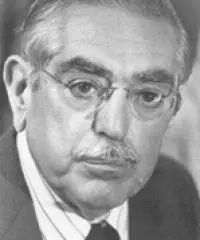
Party - Democratic - Senate Rhode Island 81st-94th (1949-1977) During a 1971 hearing, Senator John Pastore (D-RI) warned that without limits on personal spending only the wealthy or those who can obtain large contributions from
limited sources will be able to seek elective office.
Before the enactment of FECA in 1971, there was a lack of clear guidelines around campaign finance, leading to concerns about corruption and undue influence in political campaigns.
The Tillman Act of 1907 laid some groundwork by prohibiting corporations from making direct contributions to federal candidates. There were still loopholes that allowed for unregulated independent spending even in elections.
Conducted Fairly and Transparently.
With the passage of FECA, a new comprehensive framework put in place methods to address these issues. Further ensuring elections were conducted fairly and transparently. One key aspect of FECA was its establishment of contribution limits.
To prevent wealthy individuals or special interest groups from exerting disproportionate influence on the political process through large donations.
By restricting the amount that individuals could contribute to candidates or committees, FECA sought to level the playing field and reduce the potential for corruption or favoritism. Over time, the FEC has continued to refine and update these regulations in response to changing dynamics in campaign finance. The foundation laid by FECA remains crucial in shaping modern campaign finance reform efforts.
1974: FECA Amendments (Post-Watergate)
In the wake of the Watergate scandal in 1972, the Federal Election Campaign Act (FECA) underwent significant amendments in 1974. This was a direct response to the revelations of widespread corruption and illegal activities that rocked the political landscape during that time.
The post-Watergate amendments brought more transparency and accountability to campaign finance practices. As well as, imposing stricter regulations on political contributions and spending.
One of the key provisions of the 1974 FECA amendments was the establishment of limitations on individual contributions to federal candidates and political committees.
Exerting Undue Influence
These contribution limits prevented wealthy individuals or special interest groups from exerting undue influence on elected officials through large donations. By capping the amount that an individual could contribute, lawmakers sought to level the playing field and reduce the potential for corruption in political campaigns.
Additionally, the post-Watergate amendments introduced new disclosure requirements for campaign contributions and expenditures. Candidates and political committees were now required to publicly disclose detailed information about their financial activities, including sources of funding and how those funds were being used.
This increased transparency was intended to provide voters with transparency and a clearer understanding of who financially supported various candidates and campaigns, ultimately fostering greater trust in the electoral process. The reforms ushered in by the 1974 FECA amendments marked a significant milestone in campaign finance reform efforts in response to past abuses like those exposed during Watergate.
Birth of The Federal Election Commission
The birth of The Federal Election Commission (FEC) was a significant milestone in campaign finance law. Officially opening its doors in 1975, the FEC, is an independent regulatory agency tasked with enforcing federal campaign finance laws. The FEC plays a crucial role in overseeing political campaigns’ financial activities to ensure transparency and accountability in the electoral process.
With its inception, the FEC aimed to bring about fairness and integrity in political campaign financing. One of the primary responsibilities of the FEC is to administer and enforce the Federal Election Campaign Act (FECA) of 1971.
Centralized Authority
This landmark legislation set limits on contributions and expenditures in federal elections to reduce the influence of money in politics. The FEC establishmentment provided a centralized authority to oversee compliance with these regulations, thus promoting fair competition among candidates and parties.
The FEC’s formation marked a turning point in campaign finance regulation by introducing a more structured approach to monitoring political contributions. With thorough and rigorous enforcement and reporting requirements, the FEC contributes to increasing transparency around campaign financing activities.
Individuals can access valuable information on political donations through resources like OpenSecrets, shedding light on who funds various campaigns and candidates. This transparency is crucial for upholding democratic principles and holding elected officials accountable for their fundraising practices.
1976: Buckley v. Valeo
In 1976, a landmark case known as Buckley v. Valeo shook up the world of campaign finance law in the United States. This Supreme Court decision had major implications for how public funding and regulation of political campaigns are done.
The case revolved around the constitutionality of certain provisions of the Federal Election Campaign Act (FECA) of 1971, which aimed to regulate campaign contributions and expenditures. One key aspect of the Buckley v. Valeo decision was the court’s ruling on limits of campaign expenditures by candidates and their committees.
First Amendment Rights
The Supreme Court determined that these limits infringed upon First Amendment rights to free speech, as political spending was viewed as a form of expression.
This ruling had significant implications for future federal campaign finance law reform efforts, as it established a precedent that would shape the landscape of political donation laws for years to come.
Additionally, Buckley v. Valeo addressed contribution limits imposed by FECA on individuals and groups donating to political campaigns. The court upheld these limits, recognizing the government’s interest in preventing corruption or the appearance of corruption in elections.
However, this decision also opened up debates about how to strike a balance between regulating campaign finance and protecting individuals’ rights to participate in the political process through financial contributions. Overall, Buckley v. Valeo marked a pivotal moment in shaping modern campaign finance laws and continues to influence discussions on money in politics today.
1976: FECA Amendments (following Buckley)
In 1976, following the landmark Supreme Court case Buckley v. Valeo, the Federal Election Campaign Act (FECA) underwent significant amendments that shaped the landscape of campaign finance laws in the United States.
The Buckley decision struck down certain restrictions on political contributions and expenditures while upholding disclosure requirements. These FECA amendments were crucial in adapting to the changing political climate and legal challenges surfacing after Buckley v. Valeo.
Contribution Limits
One of the key aspects of the 1976 FECA amendments was the establishment of contribution limits for individuals, political action committees (PACs), and parties.
These limits aimed to prevent corruption and undue influence with restrictions on how much money could be donated to candidates for federal office.
Strengthen Enforcement
The amendments also addressed independent expenditures and electioneering communications, setting guidelines for transparency and accountability in campaign financing. Moreover, the 1976 FECA amendments introduced provisions to strengthen enforcement mechanisms under the jurisdiction of the Federal Election Commission (FEC).
The FEC’s role is to oversee compliance with campaign finance laws, investigate alleged violations, and impose penalties when necessary. By enhancing regulatory measures and oversight functions, these amendments sought to uphold the integrity of elections and promote fairness in political campaigns.
1979: FECA Amendments
In 1979, the Federal Election Campaign Act (FECA) underwent significant amendments that further shaped campaign finance laws in the United States. These amendments aimed to address loopholes and shortcomings identified since the original enactment of FECA in 1971.
One key aspect of the 1979 amendments was increased transparency requirements for political campaigns and contributions. The legislation mandated more detailed disclosure and reporting requirements of campaign finances, including stricter rules for disclosing donors and expenditures.
New Restrictions
Moreover, the 1979 FECA amendments introduced new restrictions on political donations to candidates and parties. These limitations prevent undue influence from wealthy individuals or special interest groups on the electoral process.
By capping the amount individuals could contribute to a campaign, lawmakers sought to level the playing field and reduce the potential for corruption or favoritism in politics. Another important aspect of the 1979 FECA amendments was their emphasis on enforcing compliance with campaign finance laws.
The Federal Election Commission (FEC), established as part of the original FECA legislation in 1971, was empowered with greater authority to investigate potential violations and ensure adherence to campaign finance regulations. Through these strengthened enforcement mechanisms, lawmakers sought to uphold the integrity of elections and promote fair competition among candidates.
March 27, 2002: Bipartisan Campaign Reform Act of 2002
March 27, 2002, was a landmark day for campaign finance reform with the passing of the Bipartisan Campaign Reform Act of 2002. This act, also known as the McCain-Feingold Act after its sponsors Senator John McCain and Senator Russ Feingold, aimed to regulate the financing of political campaigns.
Senator John Mccain
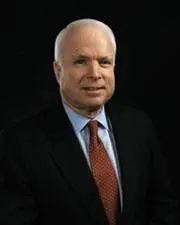
- 18 US Congresses Served
- House Years of Service
- 98th – 99th(1983 – 1987)
- Senate Years of Service
- 100th – 115th(1987 – 2018)
- State / Territory -> Arizona
Senator Russell D. Feingold

Party Democratic Senate Wisconsin Served the country in the 103rd-111th (1993-2011)
It prohibited national political parties from raising or spending “soft money,” these are funds not subject to federal campaign contribution limits. This was a significant step towards increasing transparency and accountability in political funding.
One of the key provisions of the Bipartisan Campaign Reform Act was the ban on soft money contributions to national political parties.
Before this act, a major problem of soft money in funding political campaigns, allowed large donors to circumvent contribution limits and influence elections through massive donations.
Big Money in Politics
By closing this loophole, the act sought to reduce the influence of big money in politics and level the playing field for all candidates. Additionally, the Bipartisan Campaign Reform Act tightened restrictions on issue advocacy advertisements that mentioned federal candidates close to an election cycle.
These provisions aimed to prevent organizations from running ads that functioned as thinly veiled campaign messages without being subject to campaign finance laws.
The act faced legal challenges, with opponents arguing that it infringed on free speech rights. However, it ultimately stood as a significant step toward reforming campaign finance laws in the United States.
Citizens United v. Federal Election Commission – 2010:
Another pivotal Supreme Court decision rather than a legislative act, this ruling held that the First Amendment prohibits the government from restricting independent expenditures for political communications by corporations, associations, or labor unions.
This ultimately led to the creation of “Super PACs” that can raise and spend unlimited amounts of money on behalf of candidates, as long as they do not coordinate directly with candidates or their campaigns.
McCutcheon v. Federal Election Commission – 2014:
In this decision, the Supreme Court struck down the aggregate limits on individual contributions to federal candidates, PACs, and parties. However, leaving in place the base limits on what can be given to individual candidates, PACs, and parties.
These laws and decisions represent a complex framework that governs campaign finance in the United States. They aim to balance the rights of free speech and association with the need to prevent corruption and undue influence in the political process.
The landscape of campaign finance law continues to evolve with ongoing legal challenges and legislative efforts.
Why are these Laws Important
These campaign finance laws may seem like a bunch of legal jargon and bureaucratic red tape, but they play a crucial role in ensuring the integrity of our political system. Let’s break down why these laws are important.
First, these laws help prevent corruption and undue influence in our political process. Setting limits to campaign contributions and expenditures, they aim to level the playing field and ensure that no single, wealthy individual or corporation can buy an election.
The Tillman Act of 1907 was one of the earliest attempts to address this issue by banning direct corporate contributions to federal campaigns. Subsequent laws further refined these restrictions to keep our elections fair and transparent.
Sources of Funding
Moreover, campaign finance laws promote accountability and transparency in political fundraising. Requiring candidates and committees to disclose where their funding comes from, allows the public to see the financial backers of a particular candidate or cause.
The Watchers
Websites like OpenSecrets track these political contributions, providing a valuable resource for voters to understand where candidates’ financial support is coming from. The Federal Election Commission (FEC) oversees compliance with these regulations, ensuring candidates adhere to the rules and laws like FECA 1971.
Campaign finance reform laws help uphold the democratic principles upon which our country was founded. By limiting the influence of money in politics, these laws prioritize the voices of everyday citizens over special interests.
They aim to ensure that political campaigns are driven by ideas and policies rather than by who can write the biggest check. Through ongoing efforts to strengthen campaign finance regulations, we continue striving for a more equitable and transparent electoral process that truly represents the
“Will of the People.”
Conclusion
This history journey of campaign finance laws in the United States has been dynamic and ever-evolving. From the Tillman Act of 1907 to the Federal Election Campaign Act of 1971 and beyond.
These laws have played a crucial role in shaping the landscape of political contributions and campaign finance regulations. Organizations like OpenSecrets and the Federal Election Commission (FEC) continue to monitor and enforce these laws to ensure transparency and accountability in our political process.
Despite the challenges and controversies surrounding our state’s campaign finance laws, there is room for optimism. The passage of key legislation such as the Tillman Act and FECA 1971 demonstrates a commitment to upholding the integrity of our electoral system.
Ongoing Debates
As we navigate ongoing debates about campaign contribution laws and campaign finance reform, it’s essential to remember the importance of promoting fairness, honesty, and trust in our political campaigns. As we look towards the future, let us remain vigilant in safeguarding the principles that underpin our democracy.
By staying informed, actively participating in our political process, and advocating for meaningful campaign finance regulations, we can contribute to a more transparent and accountable system.
Together, we can work towards a future where every voice is heard, every donation is disclosed, and every voter feels confident in our democratic institutions.
Campaign Finance: What You Need To Know Now
Frequently Asked Questions
What is campaign finance law?
Campaign finance law regulates the funding of political campaigns to ensure transparency, accountability, and fairness in the electoral process.
Why is campaign finance law important?
It prevents corruption, limits undue influence from wealthy donors, and promotes transparency in political funding.
What is the Federal Election Campaign Act (FECA)?
Enacted in 1971, FECA established rules for campaign contributions and expenditures and created the Federal Election Commission (FEC) to enforce these laws.
What role does the Federal Election Commission (FEC) play?
The FEC oversees compliance with campaign finance laws, monitors political donations, and ensures transparency in elections.
What was the impact of the Citizens United v. FEC decision?
The 2010 Supreme Court ruling allowed unlimited independent political expenditures by corporations and unions, significantly impacting campaign finance dynamics.
